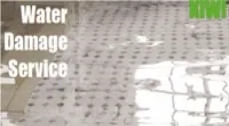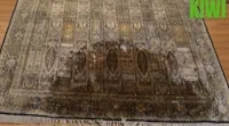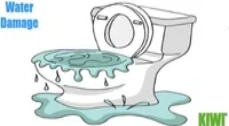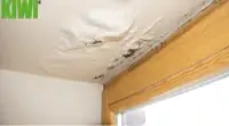Emergency Flood Cleanup

Immediate Dispatch 24/7.
40 Years Of Water Damage Restoration Experience.
Pro Water Damage Certified Technicians.
96% On-Time Track Record.
Work Directly With Your Insurance Company.
3-Year Guarantee On Our Restoration Services.
Licensed, Bonded, And Insured.


KIWI Services: Expert Flood Cleanup and Restoration
Maybe water overflowed from a faucet; perhaps you were the victim of a natural flood. Bathtub and toilet overflow, broken pipes, and several other water-related issues can wreak havoc in your home. Water damage can destroy your carpet, your furnishings, and your treasured heirloom rugs, and the last thing you want to think about is the emergency cleanup you’re going to have on your hands.
Fortunately, KIWI Restoration Services professionals are on standby and ready to help day or night. We will immediately dispatch a highly qualified crew to restore your home and bring normality back. They will employ the latest cutting-edge flood drying restoration techniques and utilize the newest equipment:
- Water pumps
- Dehumidifiers
- Moister detectors
- High-speed air movers
- Drying mats
KIWI’s Flood Cleanup Services
With 40 years of flood restoration experience, KIWI Services can come to your rescue. We’ll extract the water from your home, dry your furnishings, carpet, and walls, and sanitize the entire area. We’ll deodorize, treat for mold and mildew and handle all of the other aspects of flood cleanup while working with your insurance company so you don’t have to worry.
Common Causes of Residential Flooding
Residential flooding can cause significant distress and damage, impacting everything from your home’s structure to your personal belongings. Understanding the common causes of residential flooding can help you take preventative measures to protect your home and minimize potential risks. Here are some of the most frequent causes of residential flooding:
- Natural Disasters: Natural disasters, such as heavy rainstorms, hurricanes, and flash floods, are among the most common causes of residential flooding. These events can lead to an overwhelming amount of water accumulating quickly, surpassing drainage systems’ capacity and causing water to seep into homes. To mitigate the risks, ensure your home’s drainage systems are functioning correctly, and consider installing flood barriers or sandbags during severe weather forecasts.
- Plumbing Failures: Plumbing failures, including burst pipes, leaking faucets, and broken water supply lines, can cause substantial water damage. Pipes can burst due to freezing temperatures, age-related wear and tear, or excessive water pressure. Regular maintenance and inspections by a professional plumber can help identify and fix potential issues before they escalate.
- Appliance Malfunctions: Household appliances, such as washing machines, dishwashers, and water heaters, can malfunction and cause flooding. Faulty hoses, poor connections, or mechanical failures can lead to significant water leaks. Regularly inspect and maintain your appliances and replace old or damaged hoses to reduce the risk of appliance-related flooding.
- Blocked or Clogged Drains: Blocked or clogged drains in kitchens, bathrooms, and basements can lead to water backing up and flooding your home. Hair, grease, soap scum, and other debris can accumulate in drains and pipes over time, obstructing water flow. Regular cleaning and using drain covers can help prevent clogs and ensure smooth drainage.
- Foundation Issues: Cracks in your home’s foundation can allow water to seep into your basement or crawl space, especially during heavy rain. Foundation issues can arise from soil shifting, poor construction, or natural settling over time. Regularly inspect your foundation for cracks and address any issues promptly with the help of a professional.
- Sewer Backups: Sewer backups occur when the city’s sewer system becomes overwhelmed during heavy rainfall or when there is a blockage in the sewer line. This can cause sewage to back up into your home through drains, posing serious health risks and causing significant damage. Installing a backflow prevention valve and ensuring regular maintenance of your sewer lines can help prevent backups.
- Poor Grading and Landscaping: Improper grading around your home can direct water toward your foundation instead of away from it, leading to basement flooding. Overwatering your garden or landscaping that slopes toward your house can also contribute to water seepage. Ensure your yard is graded correctly, and consider landscaping techniques promoting good drainage.
Prevention Methods
While it’s impossible to eliminate the risk of flooding entirely, you can take several preventative measures to protect your home:
- Regular Maintenance: Schedule regular inspections of your plumbing, appliances, and foundation to identify and address potential issues early.
- Improve Drainage: Ensure your gutters and downspouts are clean and direct water away from your home. Consider installing French drains or sump pumps if necessary.
- Install Flood Barriers: Use flood barriers, sandbags, or other protective measures during heavy rainfall or flood warnings.
- Backflow Prevention: Install backflow prevention valves on your sewer lines to prevent sewage backups.
- Proper Grading: Ensure your yard slopes away from your home to prevent water from pooling around your foundation.
By understanding the common causes of residential flooding and taking proactive steps to prevent them, you can significantly reduce the risk of water damage to your home. If you experience flooding, it’s crucial to act quickly and contact a professional flood restoration service like KIWI Services to mitigate damage and restore your home to its original condition.
Our licensed, bonded, and insured emergency flood cleanup experts are always ready to help. We’ll even guarantee our work for one full year, and you can call us any time, day or night at:
Atlanta Water Damage 470-375-9789
Austin Water Damage 512-381-3418
Dallas Water Damage 469-607-0900
Fort Worth Water Damage 817-585-5977
Houston Water Damage 713-595-0431
Phoenix Water Damage 602-419-3601
Denver Water Damage 720-943-2911
Frequently Asked Questions (FAQ)


















